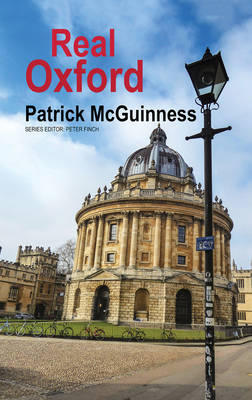
- Afhalen na 1 uur in een winkel met voorraad
- Gratis thuislevering in België vanaf € 30
- Ruim aanbod met 7 miljoen producten
- Afhalen na 1 uur in een winkel met voorraad
- Gratis thuislevering in België vanaf € 30
- Ruim aanbod met 7 miljoen producten
Omschrijving
Oxford, city of dreaming spires, bicycles, Inspector Morse, tourists, gentility. Or perhaps a less familiar place? Jericho, once seedy backstreets with Oxford's main porn cinema and an astonishing concentration of pubs, now mythologised by Philip Pullman and gentrified beyond the wildest imaginings of the college groundsmen and porters for whom it was designed. Cowley Road, the ethnic mix of restaurants, the core of Labour-voting Oxford East ward, and one of the first to elect Green councillors. Iffley and Osney Island, characterful places where one side of the street is barges, the other terraced houses with watermarks on the front doors. Cowley and Blackbird Leys, rough, industrial but also textured by modern history. In Summertown and North Oxford, huge, elegant houses back up to the river, and North Parade has crescents of Georgian splendour.
Mesopotamia attests to Oxford's history as a place of military adventure, and with the arrival of one of the UK's largest mosques, the consequences of those adventures, in a thriving and mostly happy multiculturalism. There are also places of such blandness, like Headington that McGuinness relishes the challenge of writing about them. And there are the colleges, the bookshops, galleries and museum, the city centre prison, the students, the tourists, the refugees and asylum seekers. Oxford's combination of history and the Establishment, and of transient population and change make the city a compelling subject.
Patrick McGuinness has lived and worked in Oxford for thirty years and brings an intimate knowledge to this new exploration of the city. In this book he reflects on the familiar and introduces us to the unnoticed, to create a new way of looking at Oxford.
Specificaties
Betrokkenen
- Auteur(s):
- Uitgeverij:
Inhoud
- Aantal bladzijden:
- 256
- Taal:
- Engels
- Reeks:
Eigenschappen
- Productcode (EAN):
- 9781781726204
- Verschijningsdatum:
- 21/09/2021
- Uitvoering:
- Paperback
- Formaat:
- Trade paperback (VS)
- Afmetingen:
- 135 mm x 206 mm
- Gewicht:
- 376 g

Alleen bij Standaard Boekhandel
Beoordelingen
We publiceren alleen reviews die voldoen aan de voorwaarden voor reviews. Bekijk onze voorwaarden voor reviews.











